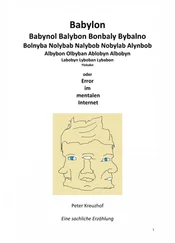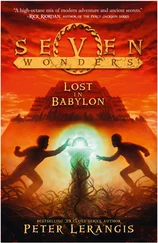“What is it, boss?” Ďula appears in the door to the kitchen, a glass of champagne in his hand. His shirt is pulled out of his trousers; he’s dishevelled and dirty. He staggers, and smiles stupidly.
Rácz is enraged. He knocks the glass out of Ďula’s hand. The glass smashes. “We’re leaving!” Rácz orders.
“Where to?” Ďula asks, not comprehending.
“Home! To the hotel, you fool!” Rácz says.
“But I’ve been drinking,” says Ďula.
“I don’t care,” says Rácz. “Get going! Out!”
Ďula looks around helplessly, but everybody is drunk, singing songs. Nobody pays attention to Rácz and Ďula. “You’ll sober up on the way,” Rácz declares. “Let’s just get out of here!” Ďula watches him helplessly. “Move it, come on, move it!” Rácz yells at him and pushes him towards the door.
The Renault minibus, its lights off, starts jerkily and rushes across Kišš’s front yard. It jumps ahead and then backs until it faces the gate, which no one has opened. Ďula puts it in second and steps on the gas. He turns on the lights. In the light is Eržika, her arms spread out, running toward the minibus, as if she wanted to stop Rácz.
“Out of the way, you snake!” Rácz screams at her through the side window. “Put your foot down!” he orders.
However, Ďula veers to avoid Eržika; the vehicle knocks down the gate and a section of the fence and gets onto the dark street. Ďula changes gear. The van roars through the sleeping village, occasionally hitting a fence at speed, or slipping into the ditch.
Rácz says nothing. He lights a cigarette. A few times he imagines he can see the silhouette of a man on horseback, but when they get nearer, it turns out to be a grotesquely shaped roadside bush, or sometimes nothing at all.
* * *
“Babylon!” A demented man on the pavement shouts, lifting his gaunt arms above his head. “The whore of Babylon!” he repeats in a stern voice.
Wanda the Trucker, clinging to an elderly Austrian, aims her long legs towards his white Mercedes, parked at the pavement in front of the hotel. Nobody pays attention to the grimy demented hermit flailing his arms, shouting, “Hosanna, I say unto you, the end is near! There is still time to repent!”
The passers-by look at him, but nobody sees that this demented preacher was once the placid, corpulent Freddy Piggybank. Gaunt, hairy, and covered in the filth of many weeks, Freddy has changed so much that he is unrecognizable. After his car park was turned into a Christmas market, Piggybank got drunk and wrecked the Ambassador Bar. Then every day he came to the hotel entrance, watching with stupefied silent reproval the goings-on in what had been his place of work. He greedily and angrily calculated how much money he’d lost. The fishmongers selling carp, the greengrocers, and the bartenders in their jerry-built wooden booths liked it near the hotel. Even after their lease expired they stayed put in the parking lot, and the long queues of customers supported their cause. They offered the town council much more rent than Freddy could afford. There were no two ways about it: Piggybank was out on the street. This personal tragedy took Freddy’s breath away and for some time he was on the verge of apoplexy. Freddy Piggybank had paid his rent and taxes like an honest man. He’d never harmed anyone. And what did he get in return? For a while he tried to raise money by charging drivers to park at the hotel pavement, but the cops put a stop to that. They threatened him with gaol, if he went on collecting money illegally. “Well then, give me back my car park,” the distressed pavement attendant retorted. The cops grabbed their truncheons and pointed them at Freddy, their necks straining and their eyebrows raised, as a sign of lively interest in his arguments. Instead of standing up for himself, the dismayed cowardly attendant avoided their gaze and left the scene in ill-concealed haste.
He could be seen spending his money on drink, pouring wine down his gullet at one of the jerry-built booths on his former parking lot. He wasn’t allowed into the Ambassador Bar. Besides, it was too expensive for Piggybank’s purse. It cost a lot at the wooden booth as well, but not so much. When Freddy got drunk, he cried. He grabbed chance listeners by their coat buttons and told them to their faces of his pain, of his heavy cross. Freddy Piggybank used to be an honest car park attendant. This here used to be a car park in the past, his only joy. He spent all and every day here. He was happy. Then came the bitch from the town council. She said the market would stay until Christmas. He said, “fine”. So they built these booths and now they won’t pull them down. Soon it’ll be New Year. And then? The booths will still be here. Apparently for good. And so Freddy Piggybank is broke.
As the last sentence comes out, he always cries. He has no money left. Just a few crowns. All his savings went on paying for the damage done to the bar. Included in the bill was everything that had broken in the last five years. He’s afraid to go home now. His parents demand money. They need it for food and electricity. But he doesn’t have any. He eats what customers leave on their paper plates. It’s not much; customers are mean and eat everything. They wipe the plate dry with their last piece of bread. Freddy Piggybank can’t believe that this is what he demonstrated against the communists in freezing weather for.
But people soon tired of listening to Freddy. They chased him away, wherever he was. He stank. He didn’t wash. His clothes were falling apart. His trailer had its electricity supply cut. He wasn’t paying for anything. He had nothing to pay with. For nights on end he shivered with cold. He would sit, or lie and think. Then he disappeared for days. The sellers and servers in the market booths thought he might be lying dead in his trailer. But nobody went to check. First of all, they hated the idea of entering his stinking home. Secondly, nobody wanted to go to the police station and sign statements.
“If he’s alive, screw him,” said the manager of the drinks stall. “If he’s dead, same thing! He won’t rot fast in this cold. If he starts to stink, we’ll have to do something. But he doesn’t stink yet. So, what do we care? He’s not one of us.”
What a surprise when, after three days, the door of the trailer opened and Freddy Piggybank appeared! Between his moustache and beard appeared a scornful grimace, and his bulging eyes burned with spiritual ecstasy. “Pray, sinners!” he cried in a stentorian voice, lifting his arms. “Punishment is near,” he added stepping between the shocked servers and drunks.
This was the beginning of a new life for Freddy. It consisted of imprecations, gesticulations, and a daily list of the most horrendous punishments which would fall on the heads of everyone around him. He lived on snow from the yellowish snowdrifts, leftover food, and rage. He became a demented hermit and, for the people from the Hotel Ambassador and its surroundings, just as well-known a character as when he ran around the parking lot with the red money bag and his fat face glistened with resolute self-importance.
“I say unto you,” shrieked Freddy, “the Lord will be awesome in his anger. He will sweep away the sinners.”
The elderly Austrian dithers. He looks back. The demented man is dressed in a baggy jacket made from a potato sack. His feet are bandaged in burlap tied with coarse hemp string. His bare knees are blue with cold. He patrols the salty pavement at a waddling run.
“You too, you Whore of Babylon,” he yells at Wanda the Trucker, and a thin string of saliva dribbles from his mouth and instantly freezes. “You, too, will be punished! Your white sinful body will fry in the fire and the torments will never end.”
Читать дальше












